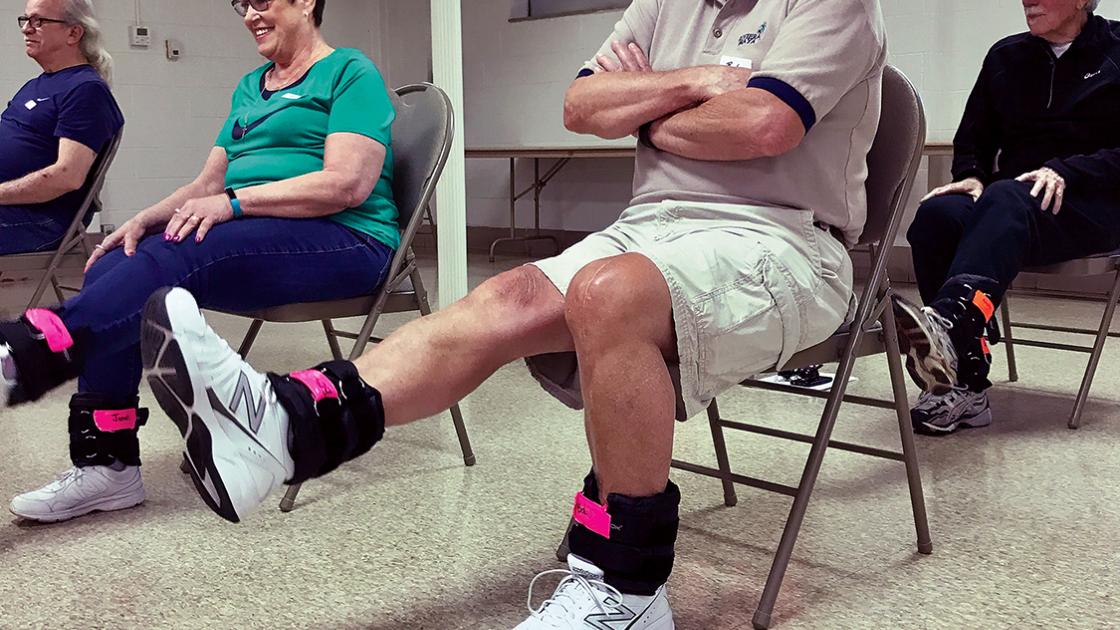
Exercise, stability & physical wellness
How does exercise correlate with brain health?
Like so many other areas of life, the link between brain health and overall health in the body are intrinsically linked. As we age, stability is a growing concern, even for those who don't have Alzheimer's and related disorders. Regular exercise appears to slow cognitive decline in older adults, with mild cognitive impairment.
Long, grueling workouts are not necessary to fulfilling this! Simple movement and exercise are beneficial and can be done at home, whether it's using a stationary bike, resistance or stretching bands, simple movements with light weights, or even sweeping and dusting around the home.
Even modest exercise is good exercise
In the middle of the pandemic, adults with mild cognitive impairment participated the EXERT Study, the longest Phase 3 study of exercise in adults with mild cognitive impairment (MCI). Two groups were made — one group focused on aerobic exercise, and the other focused on stretching and balance. Both groups exercised around 30 to 40 minutes four times a week, and the two were compared to a group that experienced neither of the interventions.
After 12 months of participation, both the aerobic group and the stretching and balance group showed no cognitive decline, suggesting that regular physical activity (even low exertion activity) can hold strong benefits for adults with MCI.
Walking is a great starting point to more exercise, but if you're limited to your home, here are some ways to make the most of being indoors:
- Simple tasks at home like dusting or sweeping
- Small movements with light weights
- Using resistance bands or stretching bands
- Use a stationary bike
- Chair yoga or Tai Chi
Check out the videos to the right for more ways to stay active indoors.

"The benefits of being physically active through any type of movement goes beyond helping our muscles and bones. Movement can improve our overall brain health, including memory and emotional well-being."
- Lindsey Teefey, Stepping Up coordinator at SIU Medicine
Better balance, better strength
No matter if someone suffers from dementia or not, maintaining strength and balance is an issue as we age. Stepping Up, one of the Smith Alzheimer's Center's Beyond the Medical Center programs, offers a way to help improve those areas in an environment comfortable for all.
The focus in Stepping Up is on fitness and fun, and includes group movement to music and exercises. Activities are designed to improve flexibility, strength, endurance and balance and are customized to each participant’s specific needs and abilities. Stepping Up is offered weekly.
Benefits of exercise are many. With diligent adherence to the program, you can improve:
- Balance
- Muscle strength
- General fitness and well-being
Persons with memory loss are referred to Stepping Up through the Smith Alzheimer’s Center’s Memory Clinic. To learn more about the program or how to enroll, email care@siumed.edu or call 217.545.7204.

Print it out
Would it be easier to remember if you had this information in hand? Download this printable sheet with helpful information about exercise, specifically for those with dementia, or see more materials from the Smith Alzheimer's Center here.
Want to learn more?
Being active and getting exercise helps people with Alzheimer’s disease feel better. Exercise helps keep their muscles, joints, and heart in good shape. It also helps people stay at a healthy weight and have regular toilet and sleep habits. You can exercise together to make it more fun.
Here are some helpful tips from the National Institute on Aging on how staying active can help improve quality of life.


